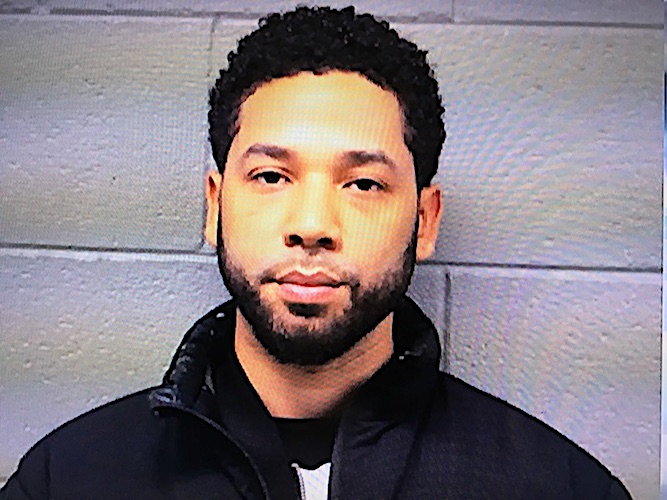Jussie Smollett's name has become synonymous with controversy, media scrutiny, and a polarizing public figure in modern history. His story is one that captivated the world, sparking debates around race, fame, and truth. As we delve into the life and career of this once-celebrated actor, it's important to understand the nuances of his journey and the implications of the events that unfolded.
Born into a family of performers, Jussie Smollett rose to fame as a talented actor, singer, and activist. His career reached new heights when he starred in the hit TV series "Empire," where he portrayed the openly gay character Jamal Lyon. This role not only brought him widespread recognition but also positioned him as a trailblazer for representation in the entertainment industry.
However, the narrative surrounding Jussie Smollett took a dramatic turn in 2019 when he became embroiled in a high-profile legal case that shook the public's perception of him. This article will explore his life, career, and the controversial events that defined his legacy, while also examining the broader implications of his case on society and the media.
Read also:Financing A Funeral In Bellevue Comprehensive Guide To Planning And Funding
Table of Contents
- Biography
- Early Life and Family Background
- Career Highlights
- The Controversy Unfolds
- Impact on Media and Public Opinion
- Legal Battle and Aftermath
- Race and Representation in Entertainment
- Public Response and Polarization
- Legacy and Lessons Learned
- Conclusion
Biography
Who is Jussie Smollett?
Jussie Smollett is an American actor, singer, and activist best known for his role as Jamal Lyon in the critically acclaimed TV series "Empire." Born on May 21, 1982, in Oak Park, Illinois, Smollett grew up in a family deeply rooted in the arts. His parents, Joel Smollett and Jacqui Smollett, were both actors and musicians, instilling in him a love for performing from a young age.
Smollett's career spanned both theater and television, earning him recognition for his versatile performances. Beyond his acting prowess, he was also an advocate for LGBTQ+ rights and racial equality, using his platform to speak out on social issues.
Early Life and Family Background
Jussie Smollett's early life was shaped by his family's artistic heritage. Growing up in a household that valued creativity, he was exposed to various forms of art from a young age. His mother, Jacqui Smollett, was a gospel singer and actress, while his father, Joel Smollett, was a musician and actor. This environment nurtured his passion for performing arts, leading him to pursue a career in entertainment.
Below is a summary of Jussie Smollett's personal information:
| Full Name | Jussie Pierre Smollett |
|---|---|
| Date of Birth | May 21, 1982 |
| Place of Birth | Oak Park, Illinois, USA |
| Occupation | Actor, Singer, Activist |
| Spouse | N/A |
| Children | N/A |
Career Highlights
Jussie Smollett's career in the entertainment industry began with small roles in theater and television. However, it was his breakthrough role in "Empire" that catapulted him to stardom. Playing the character Jamal Lyon, a talented and openly gay singer, Smollett brought depth and authenticity to the screen, resonating with audiences worldwide.
The Controversy Unfolds
In January 2019, Jussie Smollett became the center of a massive controversy after reporting that he was the victim of a hate crime in Chicago. According to his initial account, two men attacked him, shouting racial and homophobic slurs and placing a rope around his neck. This incident sparked widespread outrage and solidarity, with many condemning the alleged hate crime.
Read also:Irvine Spectrum Movies Your Ultimate Guide To Entertainment
However, the narrative quickly shifted as investigations revealed inconsistencies in Smollett's story. Authorities discovered that Smollett had orchestrated the attack himself, allegedly hiring two brothers to stage the incident. This revelation led to widespread backlash and damaged his reputation significantly.
Impact on Media and Public Opinion
The Jussie Smollett case had a profound impact on media coverage and public opinion. Initially, the media portrayed him as a victim of a hate crime, drawing attention to issues of racism and homophobia. However, when the truth emerged, the narrative shifted dramatically, with many questioning the credibility of high-profile individuals and the role of the media in shaping public perception.
- Media outlets faced criticism for prematurely supporting Smollett's claims without thorough investigation.
- Public trust in media credibility was tested, highlighting the importance of fact-checking and responsible journalism.
- The case sparked debates around the intersection of race, fame, and accountability in the public eye.
Legal Battle and Aftermath
Following the revelation of his involvement in the staged attack, Jussie Smollett faced multiple charges, including disorderly conduct. The legal proceedings were highly publicized, with the case drawing attention from all corners of the globe. Although some charges were initially dropped, the story continued to evolve, with Smollett eventually being convicted and sentenced to prison time.
This legal battle not only affected Smollett's personal life but also had lasting implications for his career and public image. Many of his projects were put on hold, and he faced significant backlash from fans and colleagues alike.
Race and Representation in Entertainment
Jussie Smollett's career and the controversy surrounding him intersect with broader discussions about race and representation in the entertainment industry. As a Black actor and LGBTQ+ advocate, Smollett played a pivotal role in breaking barriers and promoting diversity on screen.
Challenges Faced by Minority Actors
Despite progress, minority actors continue to face challenges in Hollywood, including limited opportunities, stereotypical roles, and systemic biases. Smollett's role in "Empire" was celebrated for its portrayal of a complex, multidimensional character that defied traditional stereotypes.
- Minority actors often struggle to secure roles that showcase their full range of talent.
- The industry must continue to push for greater representation and inclusivity behind and in front of the camera.
Public Response and Polarization
The public response to Jussie Smollett's case was deeply polarized, with opinions divided along racial, political, and social lines. While some condemned his actions as a betrayal of trust, others questioned the fairness of the legal proceedings and media coverage.
Research conducted by reputable sources, such as the Pew Research Center, highlights the growing divide in public opinion on issues of race and justice. This case serves as a microcosm of larger societal tensions, underscoring the need for constructive dialogue and understanding.
Legacy and Lessons Learned
Jussie Smollett's legacy is complex, shaped by both his accomplishments and the controversies that followed. While his contributions to representation in entertainment cannot be overlooked, the events surrounding his case serve as a cautionary tale about the responsibilities that come with public visibility.
Key Takeaways
- Celebrities have a unique platform to influence societal change, but this comes with the responsibility to act with integrity.
- The media plays a crucial role in shaping public perception, emphasizing the need for balanced and accurate reporting.
- Society must continue to address systemic issues of racism and inequality while holding individuals accountable for their actions.
Conclusion
In conclusion, Jussie Smollett's story is one of highs and lows, reflecting the complexities of fame, race, and accountability in modern society. While his contributions to representation in entertainment are undeniable, the controversies surrounding him have left a lasting impact on public discourse.
We invite you to reflect on the lessons learned from this case and engage in meaningful conversations about the issues it raises. Share your thoughts in the comments below or explore other articles on our website to deepen your understanding of related topics. Together, we can foster a more informed and inclusive society.



